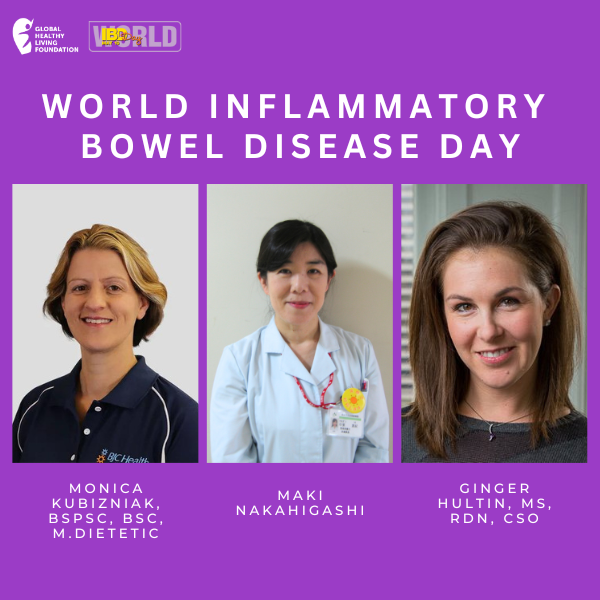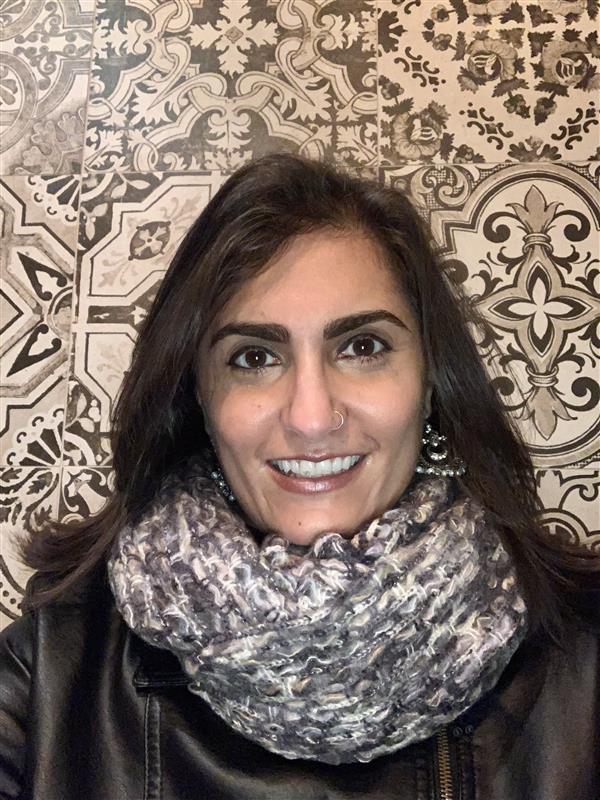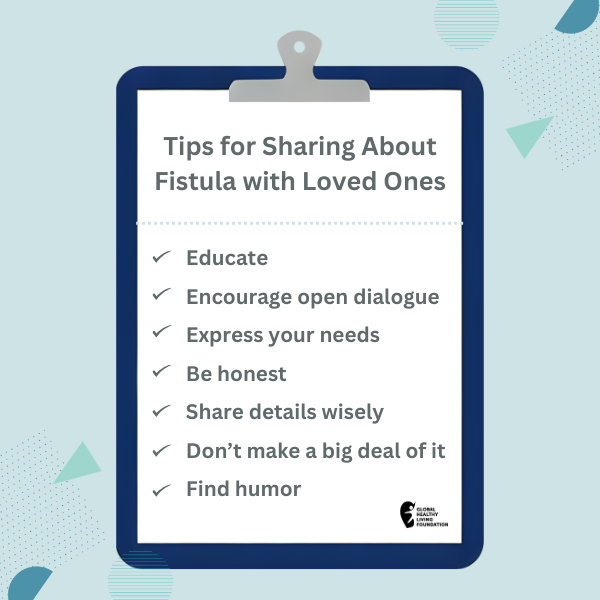In honor of World IBD Day, dietitians from three different continents share tips on managing diet and inflammatory bowel disease (IBD).
8 Inflammatory Bowel Disease Patient Advocates Share Their Stories to Raise Awareness
8 Inflammatory Bowel Disease Patient Advocates Share Their Stories to Raise Awareness
This Crohn’s and Colitis Awareness Week, advocates share their daily struggles with IBD — and how they’ve found hope and support within the community.
November 30, 2022
GHLF STAFF
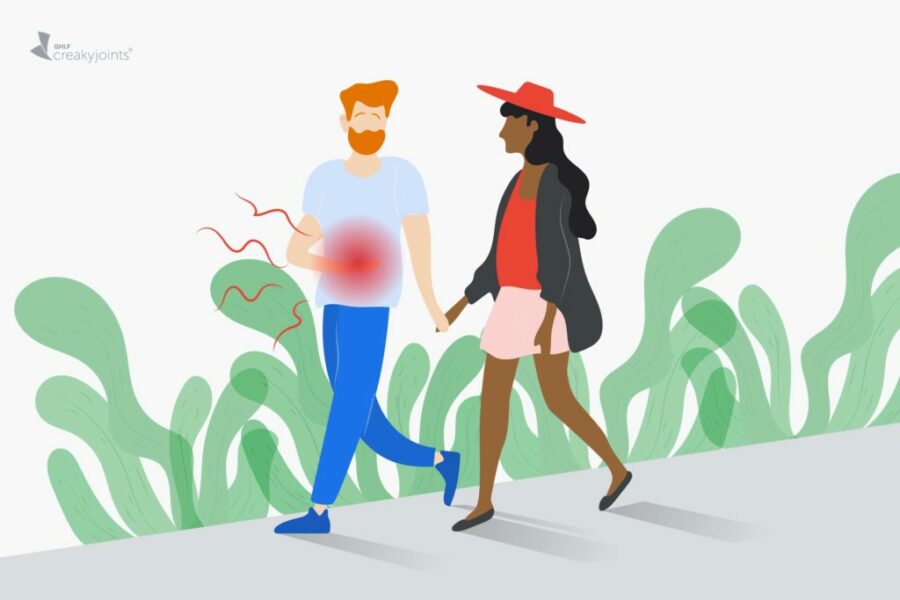
Awkward. Afraid. Isolated. These are just a few of the many feelings that surface when you’re living with inflammatory bowel disease (IBD), which is an umbrella term for different inflammatory disease that affect the gastrointestinal tract, including Crohn’s disease and ulcerative colitis (UC).
While many people have heard of IBD, many do not fully understand the physical, mental, emotional, and social toll that comes with living with these chronic conditions. In addition to physical symptoms like diarrhea, abdominal pain, rectal bleeding, fatigue, and weight loss, people with Crohn’s or UC often experience anxiety, depression, and loneliness.
As part of Crohn’s and Colitis Awareness Week, which runs annually during the first week of December, we’ve spoken with eight inspiring warriors who are living their best lives despite the challenges of IBD. Read on to discover what they want others to know about life with IBD — and why advocacy and community have become crucial to their health journey.
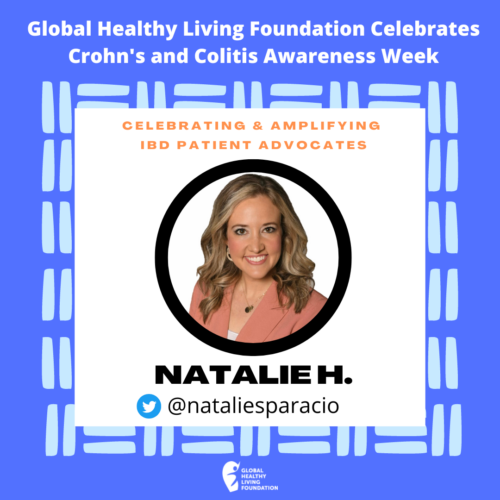
Natalie Hayden
Natalie, a mother of three, was diagnosed with Crohn’s disease in July 2005 at age 21. “When I was diagnosed, nobody was going on social media and sharing their chronic illness journey. It felt incredibly isolating and overwhelming to be given a disease with no cure at such a young age and to not be able to connect with anyone who truly understood my reality. I always strive to be the voice I needed to hear upon diagnosis.”
What is the one thing you want others to know about life with IBD?
“IBD is complicated, and just because you are in ‘remission’ does not mean you have perfect, healthy days. I reached surgical remission in August 2015, after the removal of 18 inches of my small intestine. Even though I feel well most of the time, I still deal with fatigue, joint pain, several bathroom trips a day, and the ever-looming wonder of when the next flare is going to happen. Just because someone looks well and is in ‘remission’ doesn’t mean they don’t struggle.”
What does the IBD community mean to you?
“The IBD community is like a close-knit family. I rely heavily on the friends I made for support and understanding. There are so many people I have never personally met, but have communicated with over email, text, phone, and social media, who are some of my closest confidantes and friends. It’s amazing to be able to connect with people who understand the pain and what it’s like to live with IBD. I find that I don’t have to rely on my ‘healthy’ friends and family as much because I have such a strong sense of community with people who I can talk to about my IBD without worry of judgement.”
Follow Natalie on Instagram @natalieannhayden, Twitter @nataliesparacio, and Facebook. Check out Natalie’s blog: Lights, Camera, Crohn’s – An Unobstructed View.
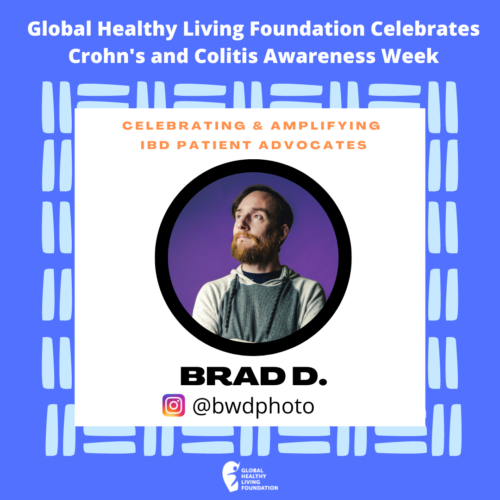
Brad Watson-Davelaar
Brad, who was diagnosed in his late teens, has been living with Crohn’s for more than 20 years. “When I was first diagnosed at the age of 17, there was not a lot of information about IBD and Crohn’s in general. I was lost with no one to turn to for help. I realized that I could become that source for others and would go through a few advocacy efforts.” After his first resection, Brad created the Crohn’s Awareness Project; using his voice to try and help others talk about difficult topics through humor.
What is the one thing you want others to know about life with IBD?
“Living with IBD can be a constant struggle but there are many communities with folks going through similar situations who are ready to help. There is a hivemind ready to answer questions and generally be a shoulder to lean on when in need.”
What does the IBD community mean to you?
“A few words that come to mind are friendship, community, and compassion — and a place to turn to when you’re in need of solidarity. We often deal with medical professionals so it’s nice to talk to those who have lived in our shoes. It makes you feel like you’re not alone. Now a new ostomate, I try to show the community that stomas are not the end but merely a fresh start.” (An ostomate is a person who has had an ostomy, a surgical operation to create an opening in the body for the discharge of body wastes.)
Follow Brad on Instagram @bwdphoto, Twitter @bwdphotocanada, and Facebook.
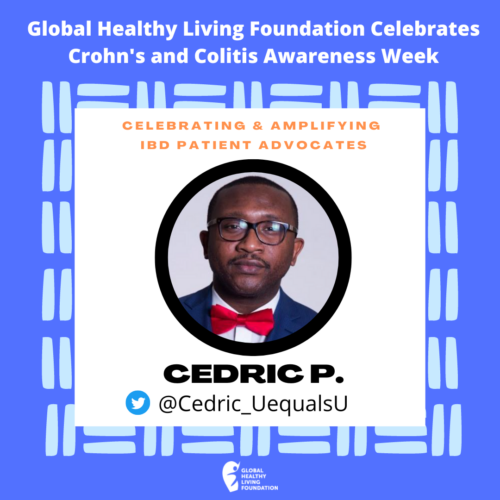
Dr. Cedric Pulliam
Dr. Cedric Pulliam, who has Crohn’s disease, is the Director of Global Public Policy at Prevention Access Campaign. His work is centered on access, community, diversity, equity, and inclusion. “My patient advocacy journey began because of the lack of Black Queer voices in the IBD patient advocacy space and being empowered by Black women in the IBD community.”
What is the one thing you want others to know about life with IBD?
“Living with Crohn’s disease impacts the decisions I make every single day.”
What does the IBD community mean to you?
“The IBD community means a lot to me because it has showcased educational knowledge about IBD, clinical trials, health equity in IBD, LGBTQ+ barriers in IBD research, innovative research, legislative advocacy, and more. Prior to joining the IBD community in the patient advocacy capacity, I was not aware of the in-depth amount of information that I have learned and continuously engage in.”
Follow Cedric on Instagram @Globetrotter247, and Twitter @Cedric_UequalsU.
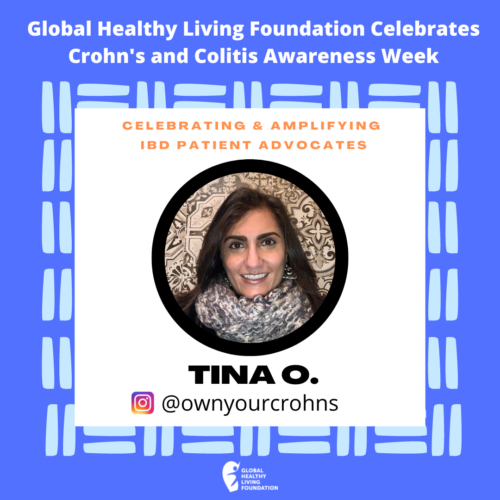
Tina Aswani Omprakash
Tina Aswani-Omprakash, creator of the blog and advocacy platform Own Your Crohn’s and co-founder of the patient-clinician led non-profit initiative South Asian IBD Alliance (SAIA), has been living with Crohn’s disease for the last 17 years. She has a permanent ileostomy, or ileal pouch to collect and store digestive waste, and has undergone more than 20 surgeries to get her condition better controlled. “I started advocating because I didn’t see anyone else of South Asian descent speaking about this disease. Given how stigmatized it is in our community and given all the cultural barriers to taking medication and having ostomy surgery, I knew I couldn’t be the only one suffering in silence. I wanted to give a voice to something that had wrecked me give others a voice so they wouldn’t suffer in shame and in silence.”
What is the one thing you want others to know about living with IBD?
“Living with IBD is very challenging and can deeply affect one’s psyche on so many levels — from self-image to restrictive diets and significant trauma from medical experiences and the disease itself. It’s important to find ways to cope well with this disease. There are not only many treatment options, but there is also a role for mental health care, dietitians, and pelvic floor physical therapists who can help you attain a much better quality of life. Hang in there, my friends.”
What does the IBD community mean to you?
“The IBD community gives me a sense of purpose and allows me to just be me authentically. I really appreciate that support and appreciate being able to return that support.”
Follow Tina on Instagram @ownyourcrohns and Twitter @ownyourcrohns.
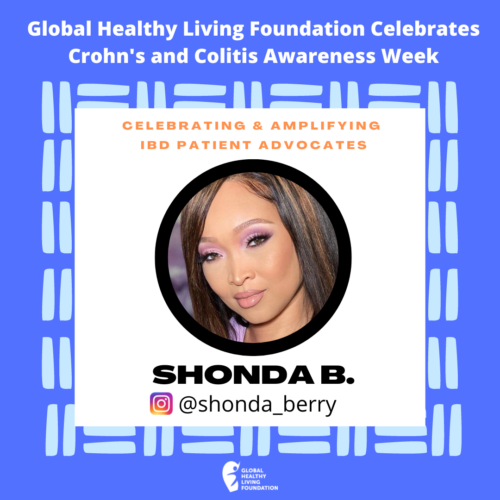
Shonda Berry
Shonda, owner of BIYOND (Boldly Inspire Yourself Over Negativity Daily) Apparel has battled UC since 1994. She was officially diagnosed in 2004 at the age of 24 after giving birth to her daughter Da’Riah. The health challenges she faced awoke the advocate nature within her. “July 21, 2019 I couldn’t celebrate my birthday; I was fighting for my life. I was severely dehydrated, ulcerations and inflammation in my colon, an infection setting in from being so sick, blood loss, and lacking potassium. I was so out of it most days. I was in so much pain, barely walking, not eating. I temporarily lost my eyesight amongst so many other things. I was even told I may need to have my colon removed. ‘Nope not me’ is exactly what I told the surgeon. Thankfully, I had my faith to fall back on and pull me through. I promised God that if he brought me out of my current situation, I would use my voice to share my story and advocate on behalf of other IBD warriors.”
What is the one thing you want others to know about life with IBD?
“IBD may be an invisible illness, but I am not, so please see me and hear me while on my patient and advocacy journey.”
What does the IBD community mean to you?
“The IBD community means support and action. Support because living with IBD is challenging and with community I don’t have to face those challenges alone. Support is also healthy and aids in managing IBD symptoms. Action because where there’s community there’s change. There’s so much research and awareness that needs to happen in the IBD space.”
Follow Shonda on Instagram @shonda_berry & @biyond, and Facebook Shonda Berry & BIYOND.
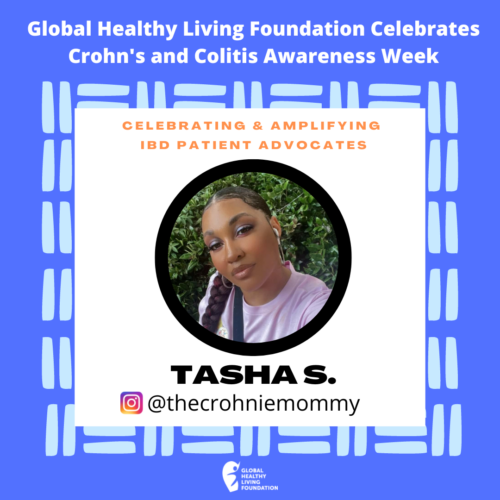
Tasha Stewart
Tasha, a Crohn’s warrior of 18 years and an ostomy warrior for the last five years, has been sharing her experience living with IBD since 2019. “I started a blog about being a new stay-at-home mom and having a chronic illness. The more I told my story the more I would receive messages relating to my struggles. It empowered me to be a voice for those not ready to use theirs yet.”
What is the one thing you want others to know about life with IBD?
“It’s hard battling the stigmas placed on us patients by the medical community and society. IBD is not just ‘the bathroom disease.’ I actually started advocating on accidents.”
What does the IBD community mean to you?
“It means helping others in this journey. It means not having to explain myself or convince people that I am in fact sick no matter what I look like. Finding community means being seen where I would normally be invisible.”
Follow Tasha on Instagram @thecrohniemommy, Twitter @thecrohniemommy and her blog Thecrohniemommy.com.
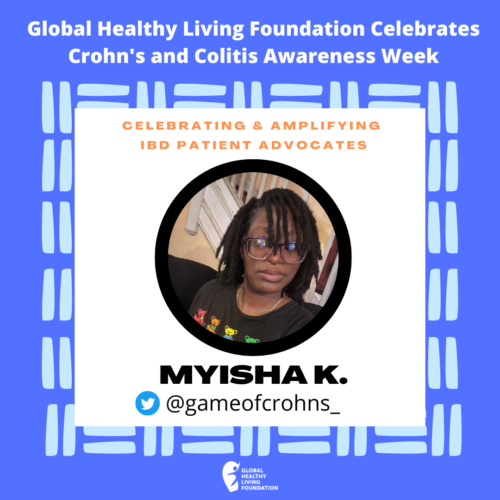
Myisha Malone-King
Myisha, a Crohn’s and Colitis Task Force member and WeGo Health Top 2020 10 Rookie of the Year, started her advocacy journey in 2015 after being diagnosed with Crohn’s disease. “I felt so alone; I didn’t know what IBD was and I didn’t want anyone to feel isolated like that.”
She almost lost her life twice. Myisha wanted to create a community where no one felt alone. She is a 2019 WeGo Health Awards finalist and a Crohn’s and Colitis Task Force member, WeGo Health Top 2020 10 Rookie of the year. Myisha is a friend to everyone and loves being a patient advocate.
What is the one thing you want others to know about life with IBD?
“That it goes beyond the bathroom.”
What does the IBD community mean to you?
“Togetherness, strength, family.”
Follow Myisha on Instagram @gameofcrohnsnchronicillness and Twitter @gameofcrohns_.
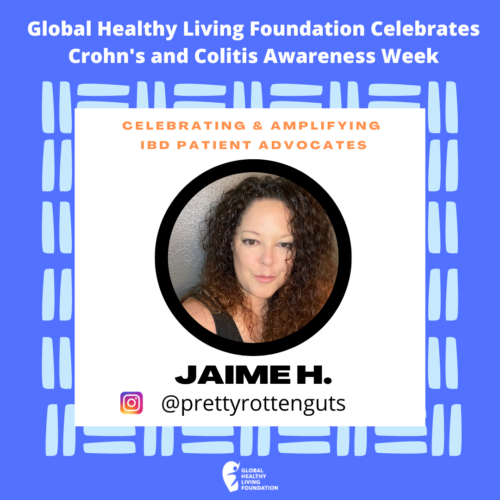
Jaime Holland
Jaime, a health and lifestyle writer, marketing consultant, and health care advocate, uses her platform handle “Pretty Rotten Guts” to help support, educate, and elevate the voices of fellow patients and caregivers. She lives with multiple health conditions, including Crohn’s disease and psoriatic arthritis, and did not receive a proper diagnosis until her early 20s. “I started advocating because I became the poster child for worst-case scenarios in misdiagnosis… I wanted to know why it was so hard to get diagnosed in the first place. I wanted to know why I was never provided treatment after my diagnosis. I wanted to know if I could still have a future and a family. I wanted to make sure that my losses would not be for nothing. Through sharing my story, I’m able to help people avoid the same situations I experienced. So, the bad experiences have not all been for nothing.”
What is the one thing you want others to know about life with IBD?
“It’s important for those new to the world of inflammatory bowel disease to know that an IBD diagnosis is not game over. In the past two decades since my diagnosis, there have been so many strides in research to understand how IBDs like Crohn’s disease and ulcerative colitis operate. We have quite a few decent treatment options available today. And we have even better ones in the pipeline.”
What does the IBD community mean to you?
“The online IBD community saved me. It offered comfort, empathy, and information. Things I wasn’t able to experience for a very long time since those first Crohn’s symptoms appeared. Now, we have niche spaces within the online IBD community for ostomy, j-pouch, treatments, the disease itself — and even a space for IBD and motherhood called IBDMoms. The community has expanded past social platforms, with YouTube channels and podcasts. I made a vow many moons ago that if my health improved I was going to remain present in the IBD community to help inform and amplify people’s voices. Find me, I want to hear your story.”
Follow Jaime on Facebook at Pretty Rotten Guts, Instagram @PrettyRottenGuts. She’s also a board member for IBDMoms a non-profit organization that supports mothers and caregivers in the IBD community. You can find the private group on Facebook at IBDMoms, and on Instagram at @IBDMoms.
The Gut Culture Podcast
To listen to IBD advocates share their stories, check out Global Healthy Living Foundation’s Gut Culture podcast. Hosted by Melodie Narain-Blackwell from Color of Crohn’s and Chronic Illness (COCCI) along with Steven Newmark, Director of Policy at Global Healthy Living Foundation, Gut Culture dives into assumptions about inflammatory bowel disease through real conversations with two health care leaders.
SUBSCRIBE TO GHLF
RELATED POST AND PAGES
_
Was this article helpful?
YesNo

